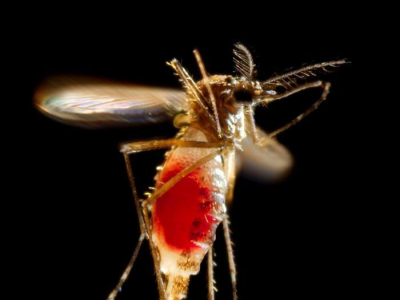The US Food and Drug Administration (FDA) today released final guidance to help pharmaceutical companies voluntarily phase out the use of certain antibiotics to promote growth in food animals, saying it wants companies to report within 3 months whether they will go along with the initiative.
Under the plan, animal-drug companies would voluntarily change the labels of medically important antibiotics to eliminate their use for growth promotion or feed efficiency. The plan also calls for putting all such drugs under veterinary supervision by requiring a prescription.
"Once a manufacturer voluntarily makes these changes, its medically important antimicrobial drugs can no longer be used for production purposes, and their use to treat, control, or prevent disease in animals will require veterinary oversight," the FDA said in a press release.
"The FDA is asking animal pharmaceutical companies to notify the agency of their intent to sign on to the strategy within the next three months. These companies would then have a three-year transition process."
The guidance documents mark the next step in the FDA's response to the long-simmering concern that overuse of antibiotics in livestock is spurring the spread of resistance in bacteria that cause human diseases.
Voluntary approach
The FDA believes that the voluntary approach is the fastest and most efficient way to respond to the problem, though some consumer groups don't agree. The Animal Health Institute, a trade association for animal-drug producers, supports the approach.
"Implementing this strategy is an important step forward in addressing antimicrobial resistance, said Michael Taylor, FDA deputy commissioner for foods and veterinary medicine, in the FDA announcement.
"The FDA is leveraging the cooperation of the pharmaceutical industry to voluntarily make these changes because we believe this approach is the fastest way to achieve our goal," he said. "Based on our outreach, we have every reason to believe that animal pharmaceutical companies will support us in this effort."
To help phase in veterinary oversight of drugs that are covered by the guidance and can be added to feed for medically appropriate purposes, the FDA also issued a proposed rule to update its regulations for Veterinary Feed Directive (VFD) drugs. The agency said the use of VFD drugs requires authorization by a veterinarian using a process outlined in the regulations.
The VFD proposed rule is intended to clarify and increase the flexibility of the administrative rules for the distribution and use of VFD drugs, which will help in the transition of over-the-counter products to VFD status, the FDA said.
"This action promotes the judicious use of important antimicrobials to protect public health while ensuring that sick and at-risk animals receive the therapy they need," Bernadette Dunham, DVM, PhD, director of the FDA's Center for Veterinary Medicine, said in the release.
In a prepublication Federal Register notice, the FDA said the final guidance is a revision of a draft version released in April 2012. The agency reported that it received and considered numerous comments and made editorial clarifications in the final guidance.
The guidance pertains to animal drugs that are currently available over the counter, used in feed and water, approved for production purposes, and medically important, according to a frequently-asked-questions article from the FDA. Once drug labels are changed, it will be illegal to use the drugs for production purposes.
As for how the FDA will assess the effectiveness of the voluntary program, the FDA noted in the Federal Register notice that it collects data on the sales of animal antimicrobials and on antimicrobial resistance in foodborne pathogens. The agency said it is working with other agencies, including the US Department of Agriculture and the Centers for Disease Control and Prevention, on ways to improve data collection in order to measure the effectiveness of the strategy.
Reaction to the guidance
The Center for Science in the Public Interest (CSPI), a nonprofit nutrition watchdog group, voiced a mixed reaction to the FDA's announcement today.
"Unfortunately it [the policy] requires the drug companies who profit from sales of their drugs to initiate the process," CSPI Food Safety Director Caroline Smith de Waal said in a statement. "The good news is that the agency has pledged to evaluate levels of compliance and inform the public after 90 days if the drug industry is cooperating with the relabeling effort."
She said that giving veterinarians the responsibility to assess when antibiotics should be used "will help reduce the overuse of antibiotics, though several loopholes in the new Veterinary Feed Directive could undermine progress. For example, the proposed regulation would give states an increased role in defining the veterinary oversight through their licensing and practice requirements, though some states don't have adequate laws regarding veterinary practice."
Meanwhile, the Animal Health Institute welcomed the news.
"It is important for consumers to know that within three years, all uses of medically important antibiotics in animal agriculture will be only for therapeutic, or targeted, purposes under the supervision of a licensed veterinarian," the institute said in a statement.
"We strongly support responsible use of antibiotic medicines and the involvement of a veterinarian whenever antibiotics are administered to food producing animals. This policy fulfills the request by a number of public health advocacy groups in a July 2009 letter to the White House."
See also:
Dec 11 FDA press release
FDA frequently-asked-questions article
Prepublication Federal Register notice summary
Full prepublication Federal Register notice
Apr 18, 2012, CIDRAP News story on animal health groups' reaction to draft guidance
Apr 11, 2012, CIDRAP News story on release of the FDA's draft guidance
Dec 11 CSPI statement
Dec 11 Animal Health Institute statement























